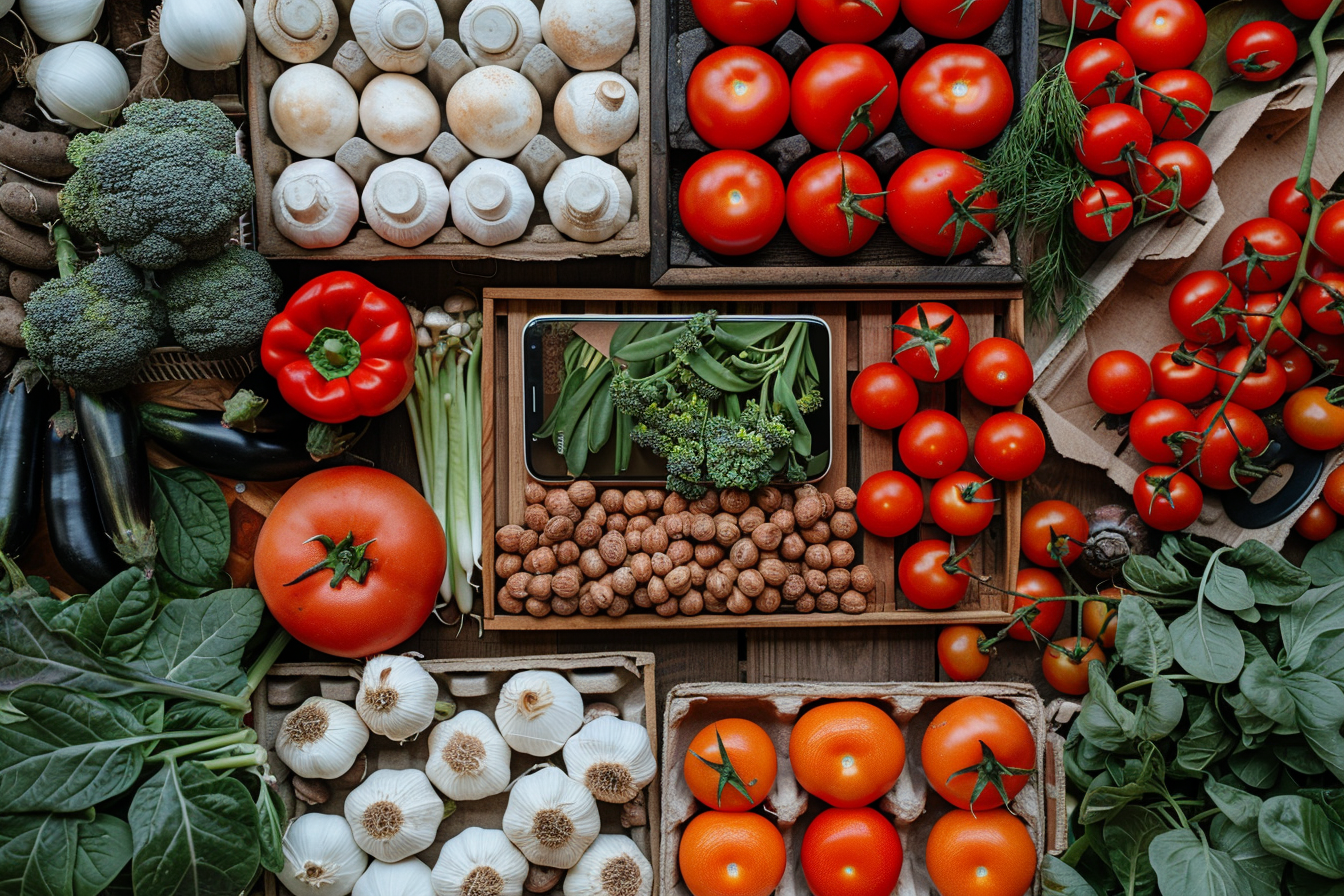The Best 10 Prebiotic Foods for Improving Gut Health
Prebiotics are non-digestible fibers serving as nutrients to probiotics, which are advantageous bacteria that live in our digestive system. These fibers remain undigested all through the upper gastrointestinal tract and reach the colon where they are fermented by probiotics.
Short-chain fatty acids such as acetate, propionate, and butyrate result from this process of fermentation, which is very important for maintaining a healthy gut environment.
There are several reasons why you need to include prebiotic foods in your diet. First of all, prebiotics support gut microbiota by selectively stimulating the growth and activity of beneficial bacteria which have an important role to play in keeping balanced gut microbiota necessary for good digestion and immune function in general.
Secondly, prebiotic fibers regulate bowel movements and prevent constipation through increasing stool bulk as well as supporting regularity. Such fibers contribute to the production of short chain fatty acids that nourish the cells lining the colon while supporting optimal digestive function.
Additionally, enhancing immune function through strengthening gut barrier function and modulating immune responses via prebiotics may help protect against infections and improve overall immune health.
Research is showing that prebiotic fibers could be useful in appetite regulation and metabolic health thus helping with weight control or reducing risk of obesity or metabolic disorders.
Finally, there has been growing evidence linking gut health to mental wellbeing. Prebiotics may have a part to play in this connection since they can influence neurotransmitter production as well as modulate inflammatory pathways which might benefit mood changes together with cognitive processing.
The commonest types of prebiotic foods that can be incorporated into your daily diet include chicory root, garlic, onions, asparagus bananas oats apples legumes among others. Nourishing these foods helps promote a healthy gut flora leading to better digestions thereby improving overall wellness.
Having a variety of different types of food containing prebiotics is beneficial for better microflora of our guts as well as for digestion. In addition, pairing prebiotics with a diet rich in probiotics can further increase the benefits to gut health.
Discover 10 prebiotic foods that support a better gut health and possibly improve other aspects of your well-being.
Chicory root

Unlike other listed prebiotic foods, chicory root is versatile and has a unique flavor. While it may not be consumed whole as frequently as some other prebiotic foods, chicory root is often included in different supplements or food products due to its high content of the prebiotic fiber inulin.
One popular way to enjoy chicory root is by using it as a coffee substitute. Chicory root tastes like coffee but it is slightly bitter and roasted. This substitution allows you to still enjoy hot drinks like coffee without giving up on their health benefits thanks to their rich content of prebiotic fibers.
In addition to being used as a coffee alternative, chicory root is also found in a variety of other products. You will find protein powders, snack bars and yogurts that contain chicory root as an ingredient. By incorporating this ingredient into these snacks, they offer convenient delicious options for you to introduce them into your daily meal plan.
There are numerous health benefits of prebiotic fiber, inulin which is found in chicory root. In the digestive system, inulin is known for promoting the growth of useful bacteria. It aids digestion and affects blood sugar levels and therefore it can be beneficial to people who manage their glucose.
Whether as a coffee substitute or included into many different food products, chicory root really adds up to one’s diet. Thus, its content of prebiotic fibers helps to maintain effective digestion and overall health.
Onions
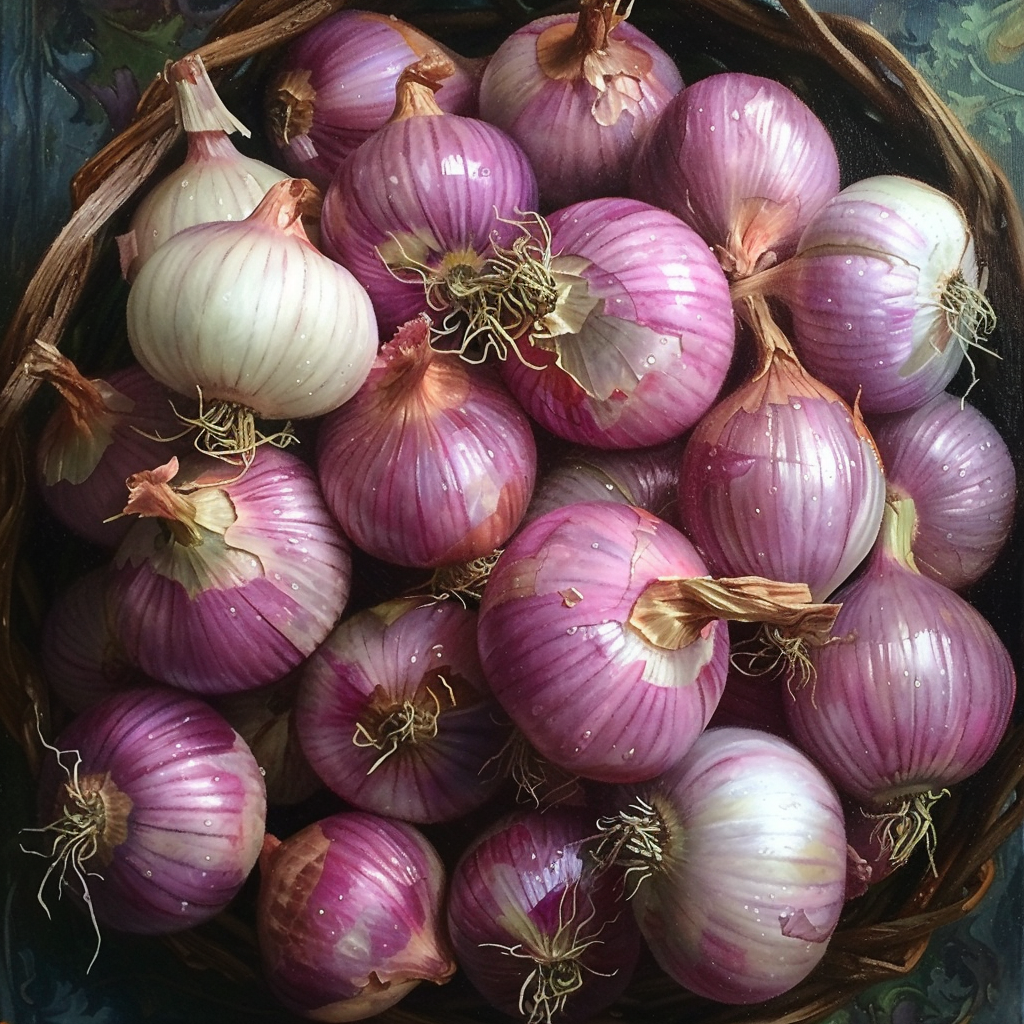
Not only do onions have a distinctive taste and smell but they also possess high nutritional values especially as concerns prebiotics. These adaptable plants contain fructooligosaccharides (FOS) which are carbohydrates with prebiotic properties alongside another form of prebiotic fiber called inulin.
In onions, FOS plus inulin are important sources of prebiotics that help to stimulate gut’s healthy microflora. They are not only important for digestive health but also overall well being.
Onions are also full of antioxidants in addition to being prebiotics which fight oxidative stress and inflammation within the body. Including raw or cooked garlic in meals is an ideal way to increase intake of both antioxidant levels and other types of Prebiotics at once.
These versatile vegetables can be eaten raw sliced in salads, caramelized with savory dishes or added soups and stews for flavor this ensures gut health support as well as increased nutrient intake at large through food variety.
Garlic
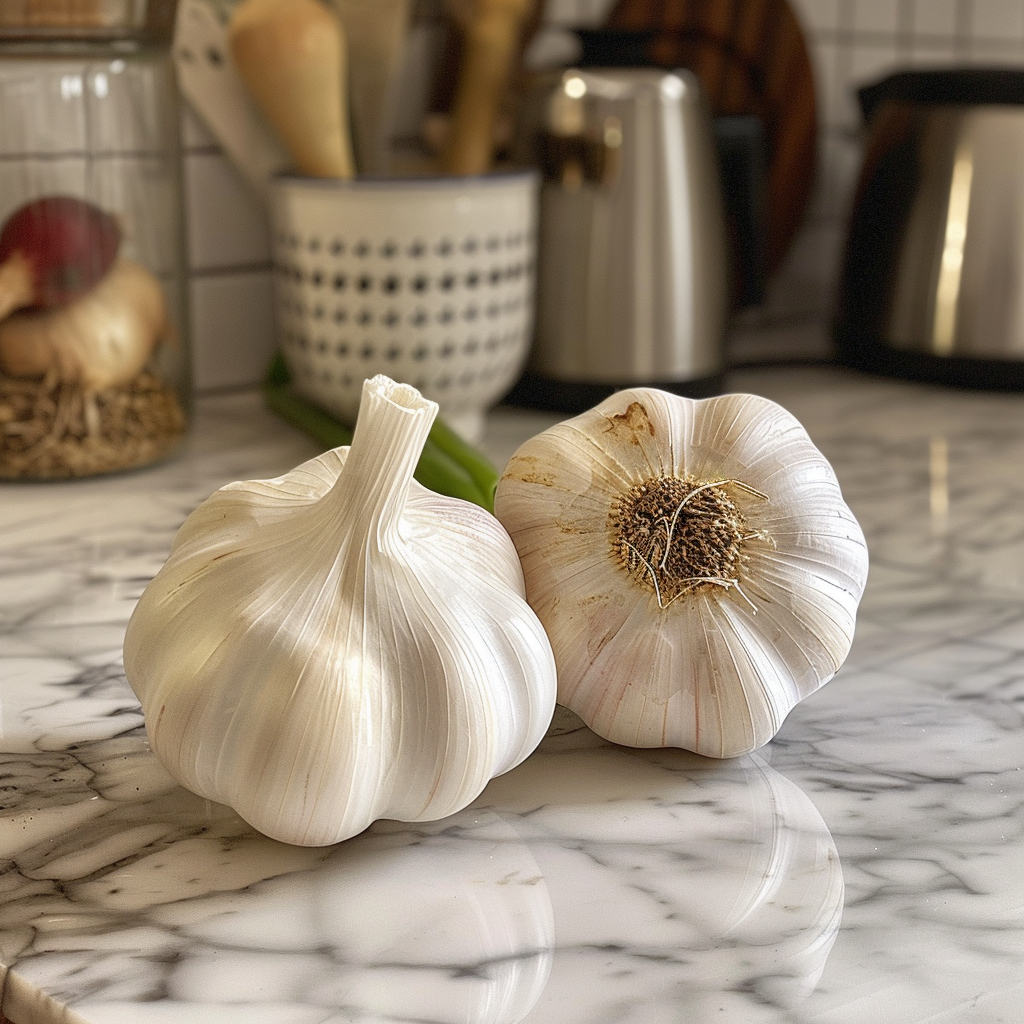
Although garlic may not be a very rich source of dietary fiber today so far, it has been linked to several gut health benefits instead.
Garlic acts as a prebiotic –based on studies –which supports growth with good bacteria while inhibiting bad ones like harmful bacteria. Therefore garlic should always be part of your gut friendly diet because it offers services twice over.
You can include garlic in your meals either when cooked or raw to introduce its prebiotic properties into your meals. It is used in many dishes as a flavoring agent including soups, stir fries, pasta and salad dressing among others.
Furthermore garlic can be ingested via tablet as a way of providing concentrated amounts of these beneficial substances.
By eating garlic one will help keep gut health intact and promote healthy balance of gut bacteria.
Bananas

Bananas are an ideal choice for prebiotic snacks. While it is rich in dietary fiber, vitamins, and minerals; bananas have resistant starch that is found more when they are green than ripe ones.
Resistant starch acts as a prebiotic by supporting growth of good bacteria in the stomach.
To consume bananas you can either take them alone or do so in different ways with meals. Add sliced bananas to your cereal or porridge at breakfast time, blend them into smoothies or use banana as a topping over yogurt pancakes.
Keeping this fruit at hand will make it easier for you to boost your intake of Prebiotics on a daily basis based on the sweetness and versatility it has compared to other fruits.
Oatmeal
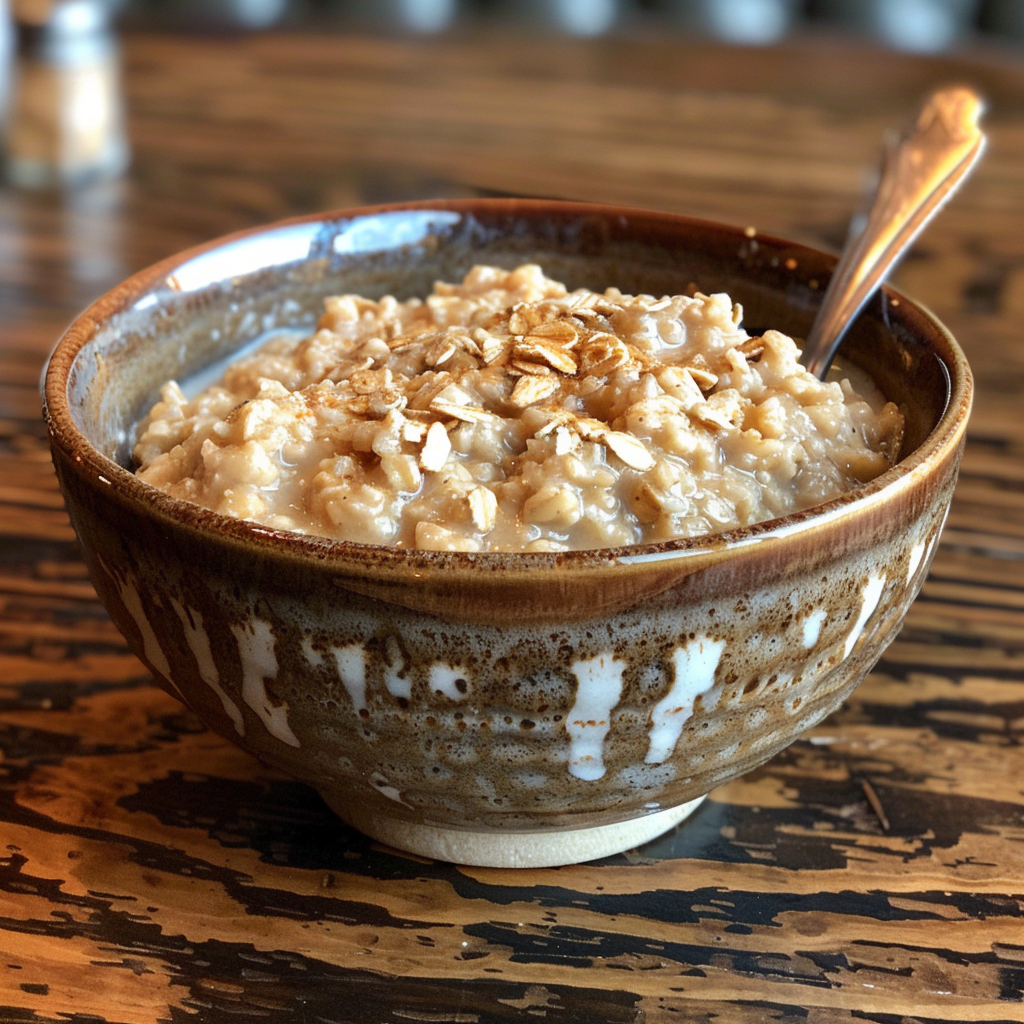
Oats make an excellent breakfast choice because they are high in fiber content and contain some resistance starch. Oatmeal also has prebiotic effects especially due to presence of endogenous beta glucan fibers which stimulate healthy growth of gut bacteria together with lowering cholesterol levels within blood vessels.
There are several different ways that you can ingest oats. You may then cook them as a hot bowl of oatmeal or alternatively have them soaked in milk or yogurt overnight to make overnight oats. Also, for more fiber and prebiotics, you can put oats in baked goods like cookies, muffins and bread.
Another alternative is to add oats into a smoothie for an energizing drink. If one combines oats with bananas and other foods that are rich in prebiotics and probiotics it will be greatly improved their gut health.
Apples
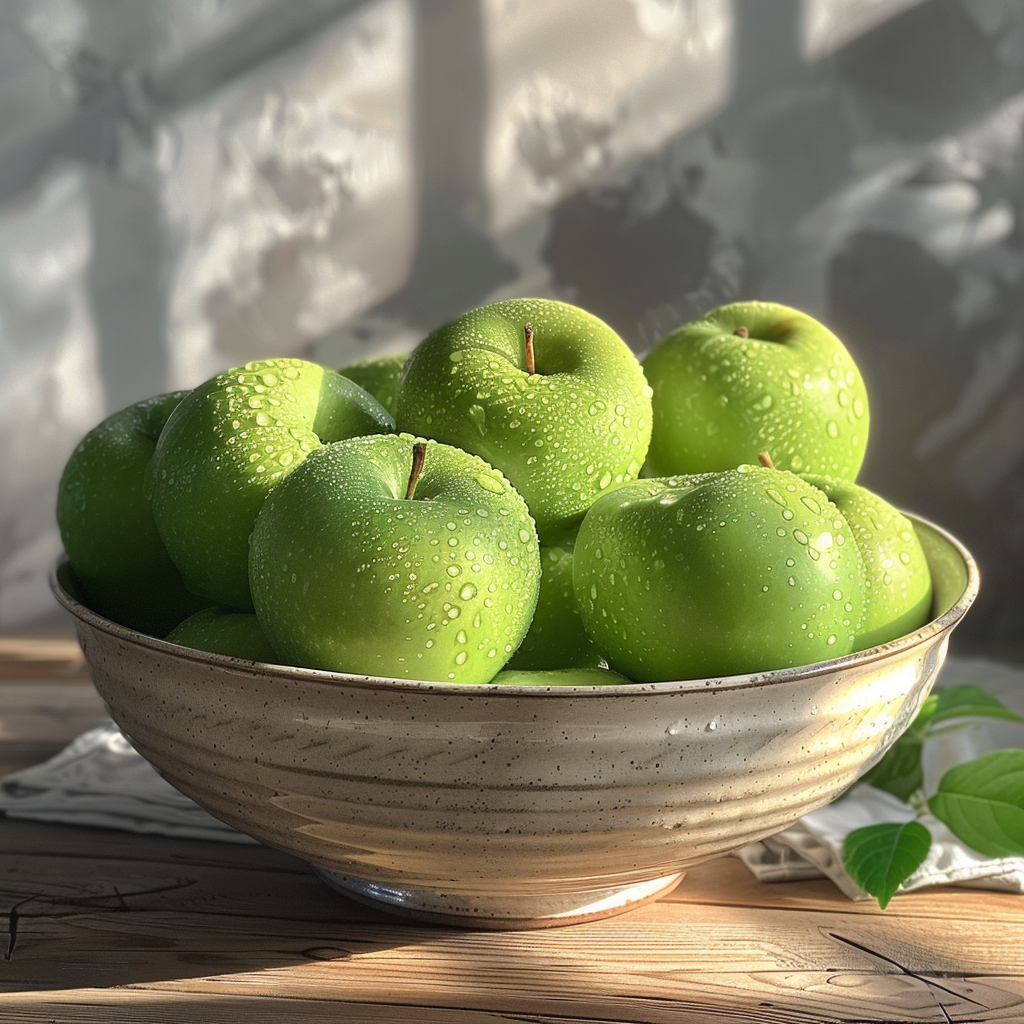
Apples are not only sweet and crunchy, but they also have a lot of health benefits due to their prebiotic effects. The soluble fiber called pectin found in apples acts as a gut prebiotic.
Eating dietary pectin helps to make butyrate, which is a short fatty acid that promotes healthy probiotic formation while also killing bad bacteria in the gut.
It’s easy to incorporate apples into your diet because they are versatile. If you like, you may have them as a tasty snack by combining them with nut butter that boosts the protein and fats in it.
Another way is to add diced or sliced apple pieces to salad so as to enhance the taste and crunchiness of the food while adding sweetness. Furthermore, apples can be cooked for various types of desserts based on fruits plus such as apple crisp or baked apples which are healthy treats that promote good digestion.
Flaxseeds
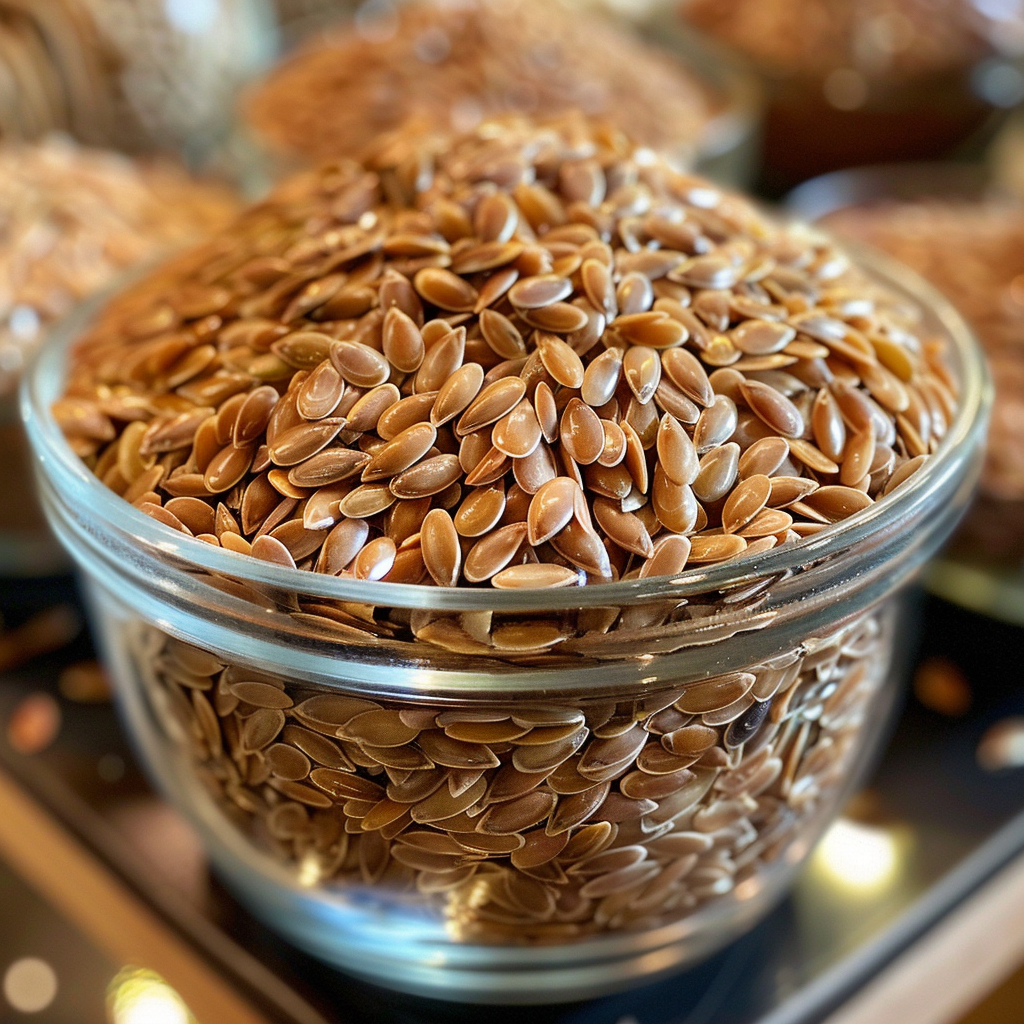
Flaxseeds are an excellent choice if you want to change up your smoothie routine; apart from being omega-3 fats and antioxidants sources, this plant also serves as prebiotics.
The high fiber content of flaxseeds enables beneficial gut bacteria growth thus promoting laxity.
Whether you decide having them whole or ground, flaxseeds possess great flexibility. You can mix them into your preferred smoothies without altering its taste too much just adding some nutrition value already present there.
Besides, ground flaxseeds can also be incorporated into foods like muffins, breads and energy bars among others thereby giving these products more texture and nutritional worthiness.
On top of this example you might scatter over some crushed seeds onto porridge or yogurt making it crispy together with prebiotic effects included.
Asparagus
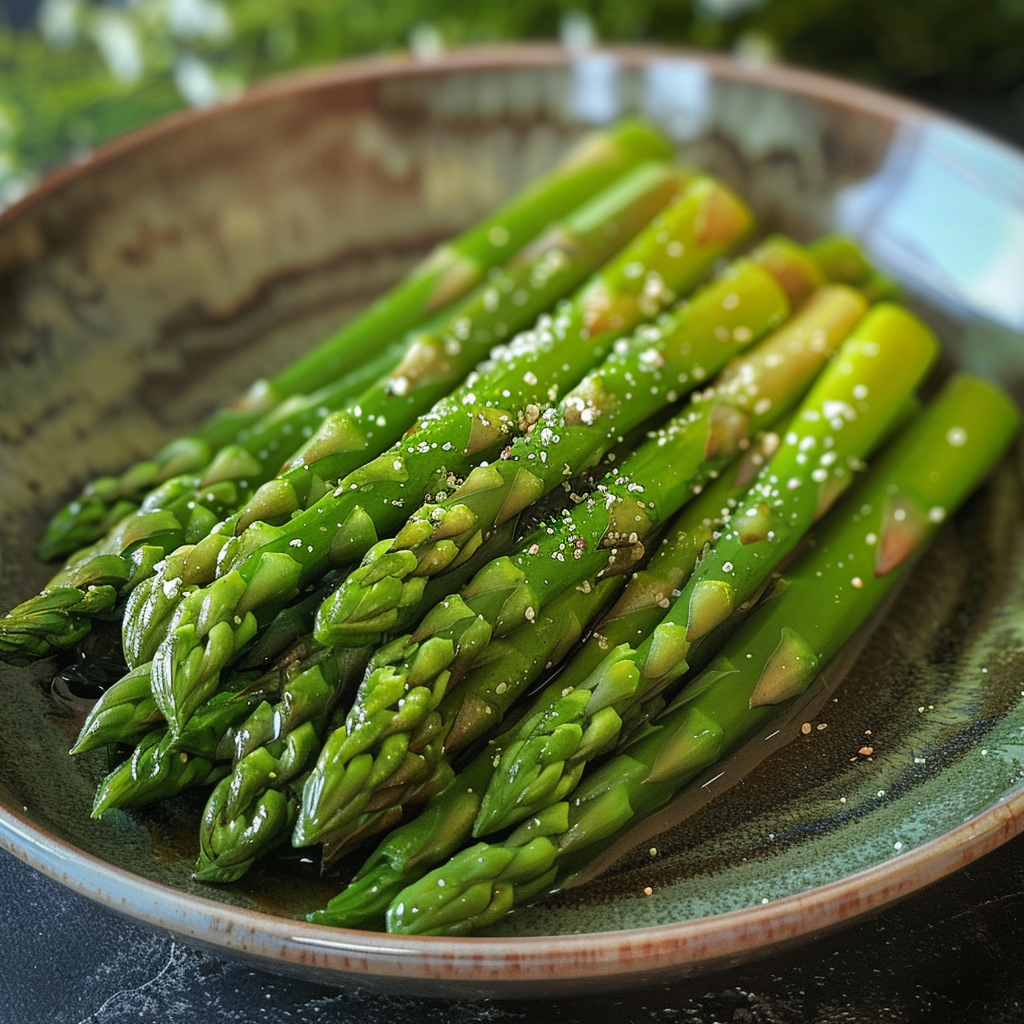
Asparagus is green vegetable containing soluble fibre called Inulin that acts as a prebiotic agent.
Specifically Inulin enriches Bifidobacteria which is one among the friendly gut bacteria in human digestive system. Moreover, asparagus is thought to have anti-inflammatory properties, which add value over and above its prebiotic benefits.
There are various ways of enjoying asparagus depending on whether you want it raw or cooked in your favourite savoury recipes.
Grilled, roasted, steamed or sautéed asparagus brings a delightful nutritious touch to salads, stir-fries, pasta dishes among others.
Wheat products
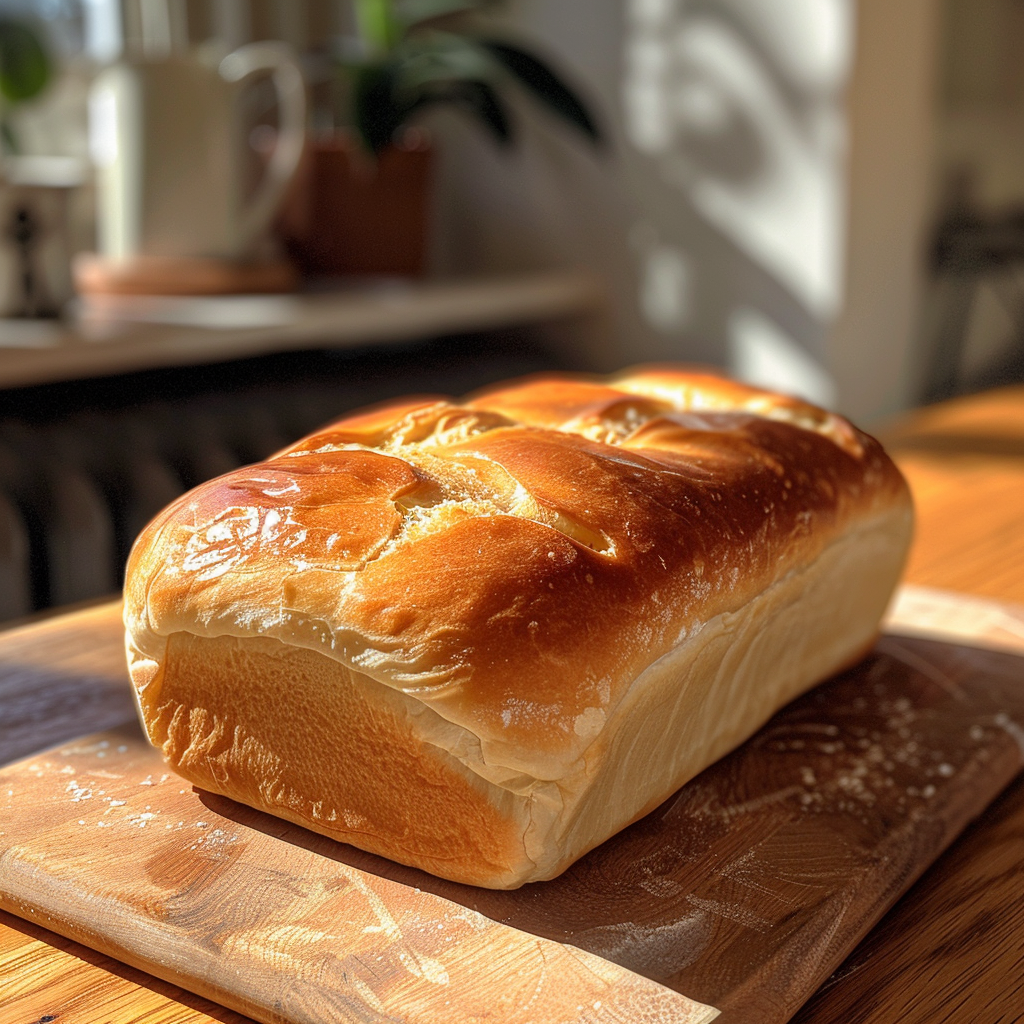
Foods such as cereal, bread, and many other items that contain wheat bran do not only taste good but also serve other purposes. Such foodstuffs also provide important prebiotic effects that promote gut health and overall wellbeing.
Wheat bran has a unique kind of fibre called fuel for the healthy bacteria present in the intestines especially Bifidobacteria. These bacteria are vital for good digestion since they assist in breaking down food and absorbing nutrients from it.
By eating foods that contain wheat bran you feed these useful microbes so they can maintain a healthier microbiome.
Moreover, including wheat bran into your diet may be quite effective in relieving certain digestive problems like constipation bloating and irregular bowel movements.
The fiber content of wheat bran makes stool bulkier thus allowing easier movement through the intestines for regular bowel movements.
Prioritize wheat-based foods such as pasta, bread, and crackers that are made from whole wheat. More so the whole wheat products retain more of the bran and germ layers of the grain ensuring you get prebiotic benefits that are maximum. Furthermore, whole wheat products often contain higher amounts of fiber in comparison to refined wheat products, which makes them even more beneficial to digestive health.
Include Wheat Bran-Containing Foods in Your Diet Regularly.
Beans
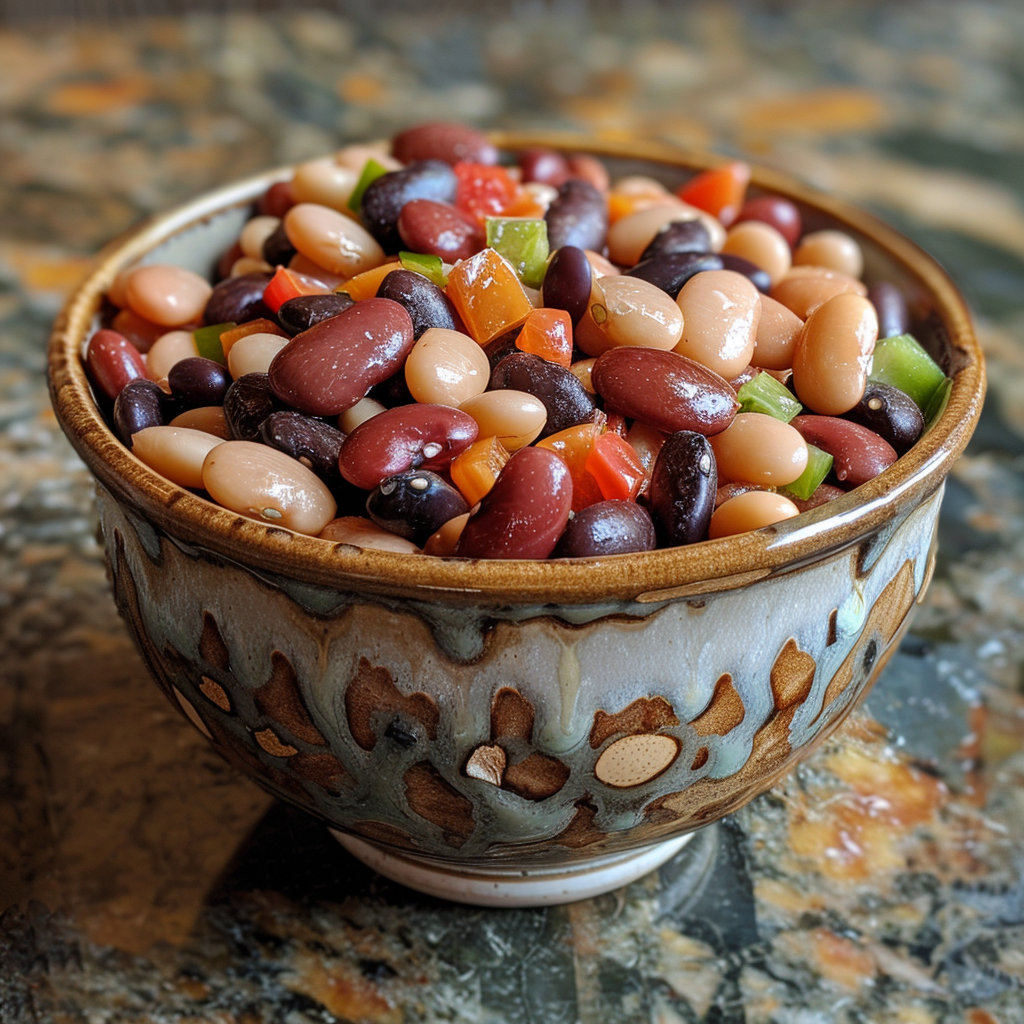
With their many different varieties, beans rank highly as an excellent source of both fiber and prebiotics. Research has shown that incorporating beans into your regular diet can have a positive impact on the gut microbiome particularly navy beans. Apart from reducing chances of developing cancerous cells through these changes also provide help in overall digestion.
Navy beans aren’t however the only legume containing significant soluble fiber content. Other types such as black beans, kidney beans, chickpeas and lentils also have a lot of prebiotic fibers.
This type of nourishing substrate for beneficial gut bacteria is composed by soluble fiber that helps to promote a healthy and diverse microbiome.
It’s easy to include bean in your meals since it is versatile. Some simple examples include adding them to salads or soups for increased texture and fiber or having them next to lean proteins and vegetables as a nutritious side dish or making them with onions plus garlic among other prebiotic sources into a delicious and healthy meal.
Black beans in a Mexican-inspired dish; chickpeas in Mediterranean salad; lentils in hearty soup—the inclusion of any variety is not just for taste but it helps support gut health as well as overall wellbeing.
Prebiotic Foods FAQs
How much prebiotic food should I eat?
This question is not easily answered because dietary requirements differ from person to person. However, it is advisable to have various types of prebiotics in your daily diet. You can aim at least two to three servings of prebiotic-rich foods per day in order to support your digestive health.
Are prebiotics safe for everyone?
Prebiotics are generally safe for everybody. However, some prebiotics may worsen symptoms in individuals with certain health conditions such as irritable bowel syndrome (IBS) or those who have FODMAP intolerance. It’s always wise to consult a healthcare professional before making major changes to your diet.
Can prebiotics help with weight loss?
While prebiotics themselves do not promote weight loss, they can form part of a healthy diet for weight management. Prebiotics can regulate digestion and potentially reduce cravings by stabilizing glucose levels thereby improving gut health.
How can I incorporate more prebiotic foods into my diet?
Begin by having small amounts of meals with high levels of prebiotics then gradually increase the intake. Cut onions or garlic into pieces that you can add into sauces as desired; take bananas or apples as quick snacks; and sprinkle flaxseeds on yogurt or cereals. This way you will ensure that you get diverse range of nutrients including different types of background material.
Can I take prebiotic supplements instead of eating prebiotic foods?
Even though there are available convenient options in form of supplements, it is generally advised that one should take whole foods which contain them as opposed to taking the supplements alone. Whole foods provide a wider variety of nutritional elements and fibers than what supplements offer. If you are thinking about using a supplement, ask the doctor about the best choices available for you.
